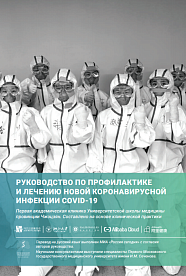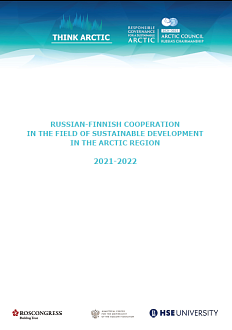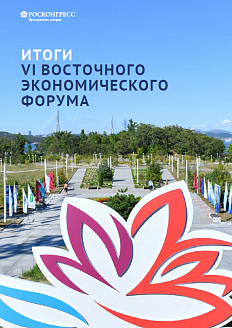This handbook is a set of recommendations for organizing national healthcare systems in the context of the novel coronavirus infection (COVID-19). Today, with the spread of the pandemic, these experiences are the most valuable sources of information and the most important weapon for medical workers on the frontline.
Therefore, the Jack Ma Foundation and Alibaba Foundation have convened a group of medical experts who have been fighting the pandemic in its epicenter in China. With the support of The First Affiliated Hospital, Zhejiang University School of Medicine (FAHZU), they quickly published a handbook on the clinical experience of how to treat this new coronavirus.
The Rossiya Segodnya International Information Agency, with support from the Russian Direct Investment Fund and scientific advice from I. M. Sechenov First Moscow State Medical University, have published the Russian version of the Handbook. The Roscongress Foundation, in its turn, presents a digest of the main facts set out in the publication.
Actions against occupational exposure to COVID-19
- In case of direct exposure of respiratory tract to COVID-19, medical personnel must immediately leave the isolation area, gargle with plenty of normal saline or 0.05% iodophor, dip a cotton swab into 75% alcohol, and wipe in a circular motion the nasal cavity gently.
Importance of repeated testing
- The peak of viral shedding appears 3 to 5 days after the onset of disease. Therefore, if the nucleic acid test is negative at the beginning, samples should continue to be collected and tested on subsequent days.
Digital support
-
Use of digital technologies for COVID-19 prevention and control is at the core of systematic approach to combating the epidemic. Online healthcare can help reduce the chances of transmission and cross infection as a result of the patients’ visits to hospitals.
-
An online medical communication platform is an important element of the series of measures to combat epidemics. The Handbook presents the International Medical Expert Communication Platform of the First Affiliated Hospital, Zhejiang University School of Medicine. Through Zhejiang’s Online Medical Platform, medical experts offer online healthcare with 24-hour free online consultation and telemedicine service to patients in China and even around the world.
Multidisciplinary teams
- Establishing expert teams is the key to COVID-19 treatment. Such multidisciplinary teams are composed of doctors from the Departments of Infectious Diseases, Respiratory Medicine, ICU, Laboratory Medicine, Radiology, Ultrasound, Pharmacy, Traditional Chinese Medicine, Psychology, Respiratory Therapy, Rehabilitation, Nutrition, Nursing, etc. A comprehensive multidisciplinary diagnosis and treatment mechanism has been established in which doctors both inside and outside the isolation wards can discuss patients’ conditions every day via video conference.
Disease progression
-
COVID-19 at the early stage often presents with multifocal patchy shadows or ground glass opacities located in the lung periphery, subpleural area, and both lower lobes on chest CT scans.
-
Disease progression mostly occurs in the course of 7-10 days.
-
Critical cases may show further expanded consolidation, with the whole lung density showing increased opacity, sometimes known as a «white lung». After the condition is relieved, the ground glass opacities can be completely absorbed, and some consolidation lesions will leave fibrotic stripes or subpleural reticulation.
Treatment
-
Mechanical ventilation (noninvasive ventilation (NIV) and invasive mechanical ventilation) is the key biotechnological solution in critical cases.
-
Extracorporeal membrane oxygenation (ECMO) is suggested as a salvage treatment.
-
COVID-19 is a disease of viral infection, therefore antibiotics are not recommended to prevent bacterial infection in mild or ordinary patients; it should be used carefully in severe patients based on their condition.
-
The convalescent plasma therapy was found to be effective in some cases, although the present SARS-CoV-2 specific IgG antibody detection does not fully demonstrate the actual virus neutralization capability of the plasma.
Underlying diseases and adverse drug reactions
- COVID-19 patients are often complicated with underlying diseases receiving multiple types of drugs. Therefore, medical staff should pay close attention to adverse drug reactions and drug interactions.
Psychological intervention with COVID-19 patients
- Patients’ mental states (individual psychological stress, mood, sleep quality, and pressure) should be monitored every week after admission and before discharge. COVID-19 patients often have symptoms such as regret and resentment, loneliness and helplessness, depression, anxiety and phobia, irritation and sleep deprivation. For mild patients, psychological intervention is suggested. For moderate to severe patients, intervention and treatment by combining medication and psychotherapy are recommended.
Discharge standards
- The recommended discharge standards include the following: (1) body temperature remains normal for at least 3 days (ear temperature is lower than 37.5 °C); (2) respiratory symptoms are significantly improved; (3) the nucleic acid is tested negative for respiratory tract pathogen twice consecutively (sampling interval more than 24 hours); (4) lung imaging shows obvious improvement in lesions; etc.
To combat COVID-19 effectively, it is critical that medical personnel benefit from first-hand experience accumulated by medical experts in various countries over the past few months. Sharing this knowledge and promptly introducing the practices recommended in this Handbook will help raise the effectiveness of measures currently being taken in Russia.






